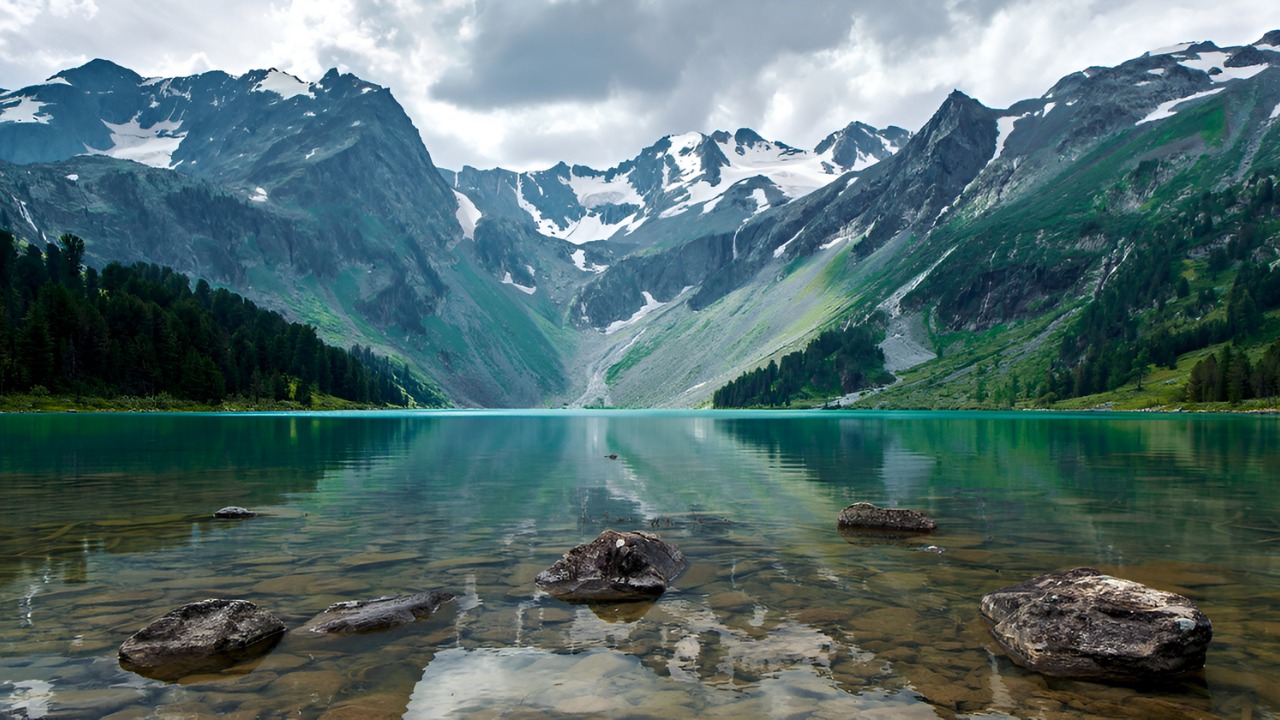
Russia is the largest country in the world, spanning across Europe and Asia. Did you know that it covers 11 time zones? This vast nation offers a diverse landscape, from the icy tundras of Siberia to the bustling cities like Moscow and St. Petersburg. Russia's geography is not just about size; it's about variety. You can find everything from towering mountains to expansive plains. Lake Baikal, the world's deepest freshwater lake, is also in Russia. Ever heard of the Trans-Siberian Railway? It’s the longest railway line globally, stretching over 9,000 kilometers. Intrigued yet? Let's dive into 25 fascinating facts about Russian geography that will leave you amazed!
Key Takeaways:
- Russia is the largest country in the world, spanning two continents and 11 time zones. It's home to diverse landscapes, extreme weather, and abundant natural resources, making it a geographical wonderland!
- From the vast Siberian Taiga to the extreme temperatures of Oymyakon, Russia's geography is full of surprises. It's also rich in natural resources, including the world's largest natural gas reserves.
Russia's Vast Size
Russia is the largest country in the world, spanning two continents and covering a significant portion of the Earth's landmass. Its sheer size brings about some fascinating geographical facts.
- Russia covers over 17 million square kilometers, making it larger than Pluto.
- It spans 11 time zones, more than any other country.
- The country stretches across Europe and Asia, with the Ural Mountains acting as the natural divide.
- Russia's land area is larger than the surface area of the planet Pluto.
- The Trans-Siberian Railway, the longest railway line in the world, runs from Moscow to Vladivostok, covering 9,289 kilometers.
Diverse Landscapes
Russia's vast territory includes a variety of landscapes, from mountains to plains, forests to tundras. Each region has its own unique features.
- The Siberian Taiga is the largest forest in the world, covering an area larger than the Amazon Rainforest.
- Lake Baikal, located in Siberia, is the deepest and oldest freshwater lake in the world.
- The Ural Mountains, stretching from north to south, are among the oldest mountain ranges on Earth.
- The Kamchatka Peninsula is home to over 300 volcanoes, 29 of which are active.
- The Russian tundra, found in the northern regions, is characterized by its permafrost and lack of trees.
Climate Extremes
Russia experiences some of the most extreme weather conditions on the planet, with temperatures varying greatly across the country.
- Oymyakon, a village in Siberia, holds the record for the lowest temperature ever recorded outside Antarctica at -67.7°C.
- The city of Verkhoyansk, also in Siberia, experiences temperature swings from -68°C in winter to 37°C in summer.
- Moscow, the capital, has a humid continental climate with cold winters and warm summers.
- Sochi, located on the Black Sea coast, enjoys a subtropical climate, making it a popular resort destination.
- The Russian Arctic sees polar night and midnight sun phenomena due to its high latitude.
Water Bodies
Russia is home to numerous rivers, lakes, and seas, each contributing to its rich geographical diversity.
- The Volga River, the longest river in Europe, flows entirely within Russia.
- Lake Ladoga, near St. Petersburg, is the largest lake in Europe by surface area.
- The Caspian Sea, bordered by Russia to the north, is the world's largest inland body of water.
- The Ob River, one of the major rivers in Siberia, flows into the Arctic Ocean.
- The Lena River, another major Siberian river, is known for its unique delta and extensive wetlands.
Natural Resources
Russia's vast geography is rich in natural resources, making it a key player in global energy markets.
- The country holds the world's largest natural gas reserves.
- It is the second-largest producer of oil, after the United States.
- Russia is a leading producer of coal, with significant deposits in Siberia.
- The country has vast mineral resources, including diamonds, gold, and platinum.
- The Siberian region is known for its extensive timber resources, contributing to Russia's status as a major exporter of wood products.
Russian Geography: A Vast and Diverse Landscape
Russian geography is truly vast and diverse. From the frozen tundras of Siberia to the bustling cities of Moscow and St. Petersburg, there's a lot to explore. Russia spans 11 time zones, making it the largest country in the world by land area. It boasts the deepest lake, Lake Baikal, and the longest railway, the Trans-Siberian Railway. The Ural Mountains serve as a natural divide between Europe and Asia, while the Volga River is the longest in Europe. Russia's geography also includes a variety of climates, from arctic conditions in the north to more temperate zones in the south. This diversity makes Russia a unique and fascinating country to study. Whether you're interested in its natural wonders or its urban landscapes, Russian geography offers something for everyone.
Frequently Asked Questions
Was this page helpful?
Our commitment to delivering trustworthy and engaging content is at the heart of what we do. Each fact on our site is contributed by real users like you, bringing a wealth of diverse insights and information. To ensure the highest standards of accuracy and reliability, our dedicated editors meticulously review each submission. This process guarantees that the facts we share are not only fascinating but also credible. Trust in our commitment to quality and authenticity as you explore and learn with us.
